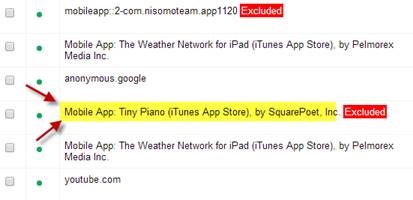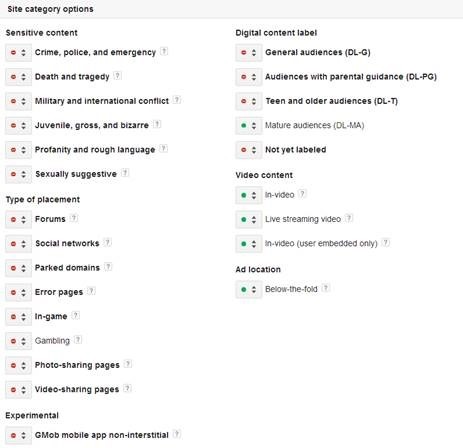Your biggest asset for your AdWords account is time -- but many of us have very busy schedules. From fighting rush hour traffic to attending meetings, from squeezing in an hour at the gym to spending time with family; how do you have time to check on the performance of your AdWords account?
There isn't anything that can replace valuable time spent optimizing your account, but there are signs that you can look for to see if your Adwords account is in distress and under-performing.
Limited By Budget
What It Means
Your ads are eligible to run, but aren't being shown as often as they might be if you had a higher budget. Have you exhausted your daily budget? Have your ads stopped running at 2pm?
What Can I Do
- Decrease your bids & ad positions.
By decreasing your bids, you'll pay less for click. The top ad position is more likely drive a higher cost-per-click. Being in the top ad position, doesn't guarantee you more clicks. Consider pausing high CPC non-converting keywords. This would allow your top performing keywords to have more budget to perform.
- Review your ad scheduling.
Here, we can set bid adjustments to increase or decrease our bids for specific days and times. This can help you bring down costs. By reviewing conversion data, you can get a better idea of when conversions are more likely to take place. We can also look at which days through the week are offering the highest quality of traffic and with this data, focus your budget to those times of day and those days of week that are providing the highest ROI.
Review Your Impression Share
What It Means
Impression Share is the number of impressions you've received divided by the estimated number of impressions you were eligible to receive. You can view Impression Share data at the campaign, ad group and keyword levels.
While we would never expect to see an Impression Share of 100%, we recommend striving for an average of 70% as a benchmark.
How Can I Improve
Impression Share helps us understand the roles of bids, quality scores and our match type strategy. It's a great indication of how to act on low-performing keywords. Whether it's to increase bids or your daily budget, improve the overall quality of your ad's and keywords, or using search terms to identify new keywords and negative keywords.
Review Your Device Performance
What it Means
How is your mobile activity performing? Is your site mobile friendly? Is it difficult to navigate around your site? Are you spending on mobile and not getting results? Consider decreasing your mobile bids or not bidding on mobile at all. You have the option of decreasing mobile bids by up to 100% to take mobiles out of your device targeting.
If your campaign(s) are not performing and your Cost per Conversion is too high, consider taking a look at the different devices and how they are performing.
- Learn how to target mobile devices with Adwords' hyper-local campaigns (Andrew Popowycz)
Review Your Display Campaign Performance
What It Means
Managing a display campaign is different than managing a search campaign.
Some factors to consider with a display campaign:
- Display campaign results are going to differ from search.
- Click-Through-Rate's (CTR) will generally be lower than search & all display campaign keywords are treated as broad match.
Here are 3 quick & easy display optimizing tips to consider if running a display campaign.
- Placement Performance - Where exactly are your ads being displayed? It is VERY important to monitor your automatic placements. This is when you allow Google to determine where your display ads will be shown. Watch over your automatic placements & exclude poor performing sites and sites that are irrelevant to your business.
- Mobile App Exclusions - Are Mobile Apps eating up your display campaign budgets? In order to prevent this, you need to add adsenseformobileapps.com as a campaign placement exclusion.

- Category Exclusions - Site category exclusions are categories of web sites that you can choose to exclude from your campaigns. Unfortunately, Google no longer lets you see performance by these different 'categories', but at least you still have the ability to exclude them.
Next Steps
- The Real Cost Of Adwords: 6 Calculations You Need To Know (Joe White)
- A Brief Guide To Google AdWords Bidding Strategies (Dorian Travers)





